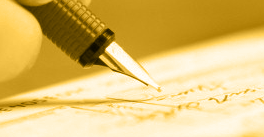Intro ADS

May I first extend a warm welcome to the members of this panel as well as to members of our audience and express the hope that our workshop, although short on time will be rich in substance and contribute to the success of the Vienna Annual Convention of ADS, the AeroSpace and Defence Industries Association of Europe.
The Aerospace and Defense Industries of Europe ,some of whose major players are represented in this room at a senior managerial level,are facing a number of serious challenges, challenges which are of an endogenous as well as of an internal nature.
Over a number of years Europe’s Aerospace industries have been involved in a successful effort to catch up advances ,accumulated over decades, by major competitors and develop world class products such as the aircraft of the AIRBUS family and the launchers of the ARIANE family.Many of these successes were achieved under international conditions which were far less from a level playing field.They were made possible, however, because Europe developed new forms of cooperation by which the narrow limits of national markets and national potentials could be overcome.
While it would be over-pessimistic to say that the first, golden age of Europe’s venture into the global aerospace domain is over, new limits and new challenges have appeared which invite to embark on a number of new departures.
In the field of space Europe is confronted with ambitious and determined competitors which have developed farreaching objectives such as the new space visions of the United States - return to the Moon,travel to Mars and beyond – or the equally ambitions goals of China and India. A new European space policy is certainly on the drawing board but it still lacks the political backing and the drive others have shown.GALILEO and GMES,the latter even more, are slow to take off and have to overcome initial shortcomings.
The latest developments in the aeronautics industry have also thrown up a number of new challenges.
In our workshop we shall address some of the most important instruments Europe has got to address these challenges, in particular the best possible practice in research and development,using the umbrella of the 7th framework program which contains important innovations in this field,as a starting point.
In this debate we should also take account of major lessons of the past,particularly success stories that could build on a complimentary, collective effort between industry, national and European sources.
Not least we should highlight the role of industry in the field of research and development and I am somewhat encouraged by a recent study of the EC in Brussels saying that the largest corporations in the EU taken together have increased spending on R&D by 5,3%in 2005,compared,however to an increase of 7,7 by a similar group of 1000 corporations outside the EU.Among the 5o biggest spenders world wide 18 come from the EU, the same number as from the US, Japan providing 10 big spenders.
Let me now open the debate by giving the floor to our first panelist

| |




